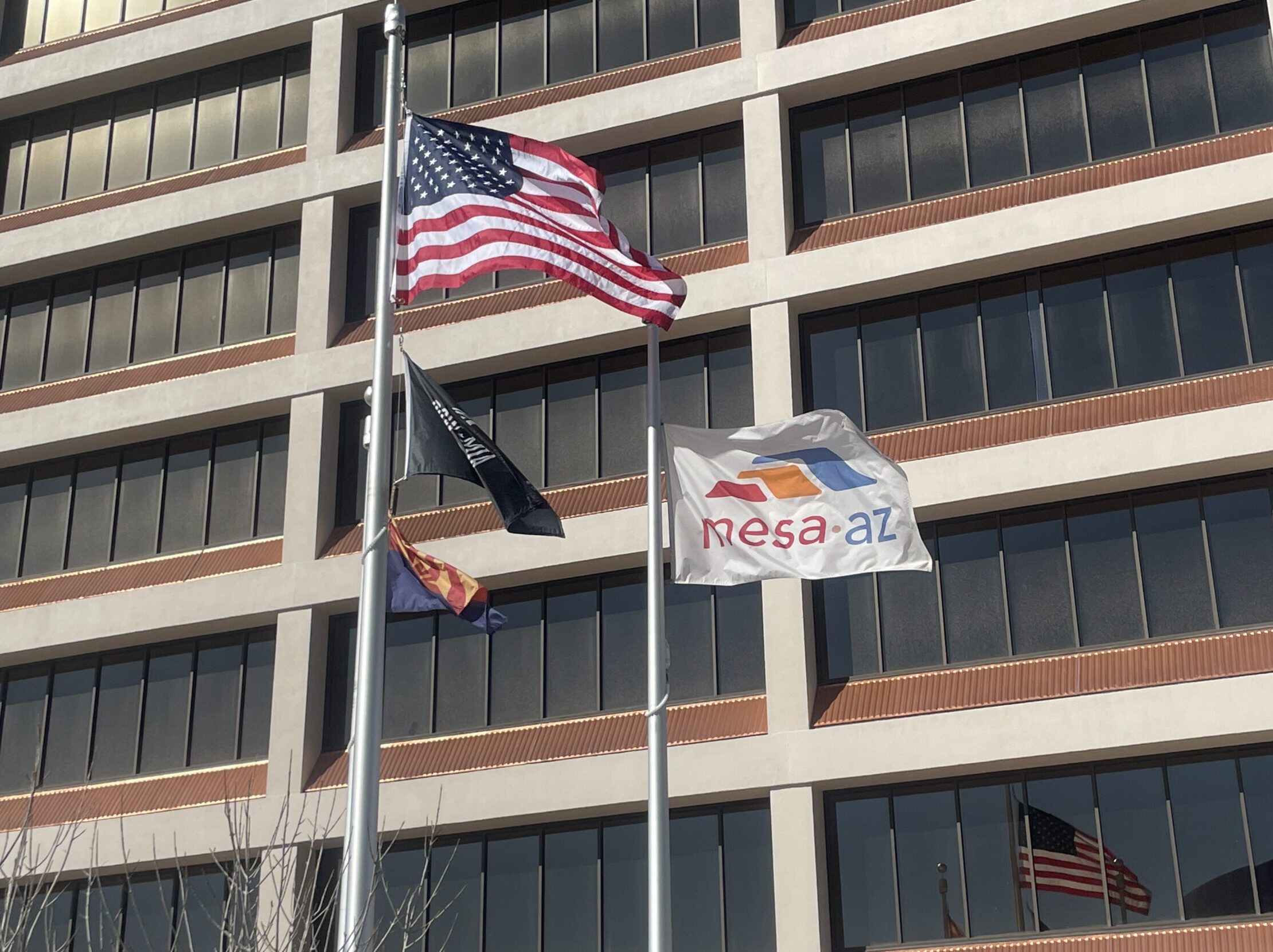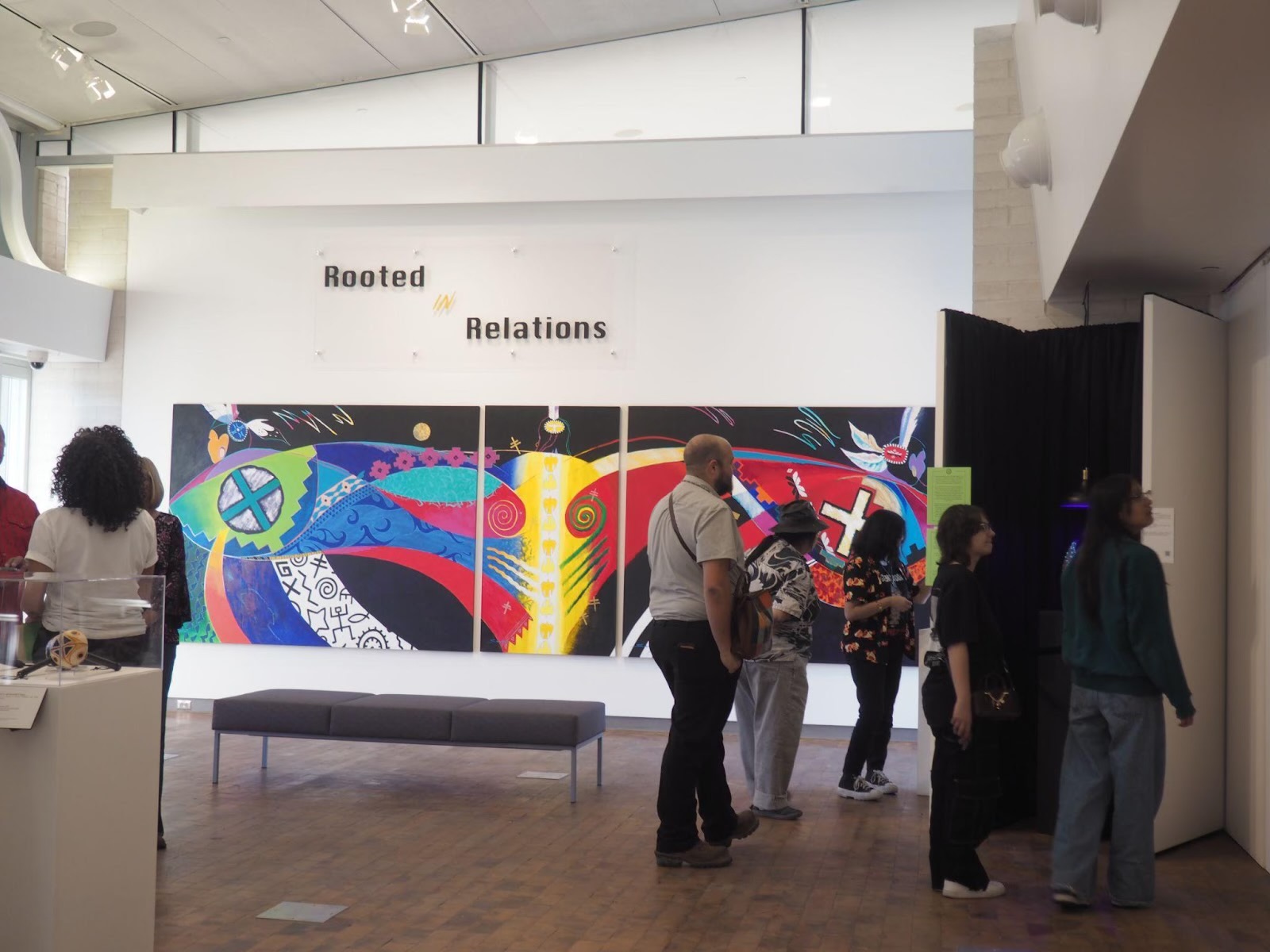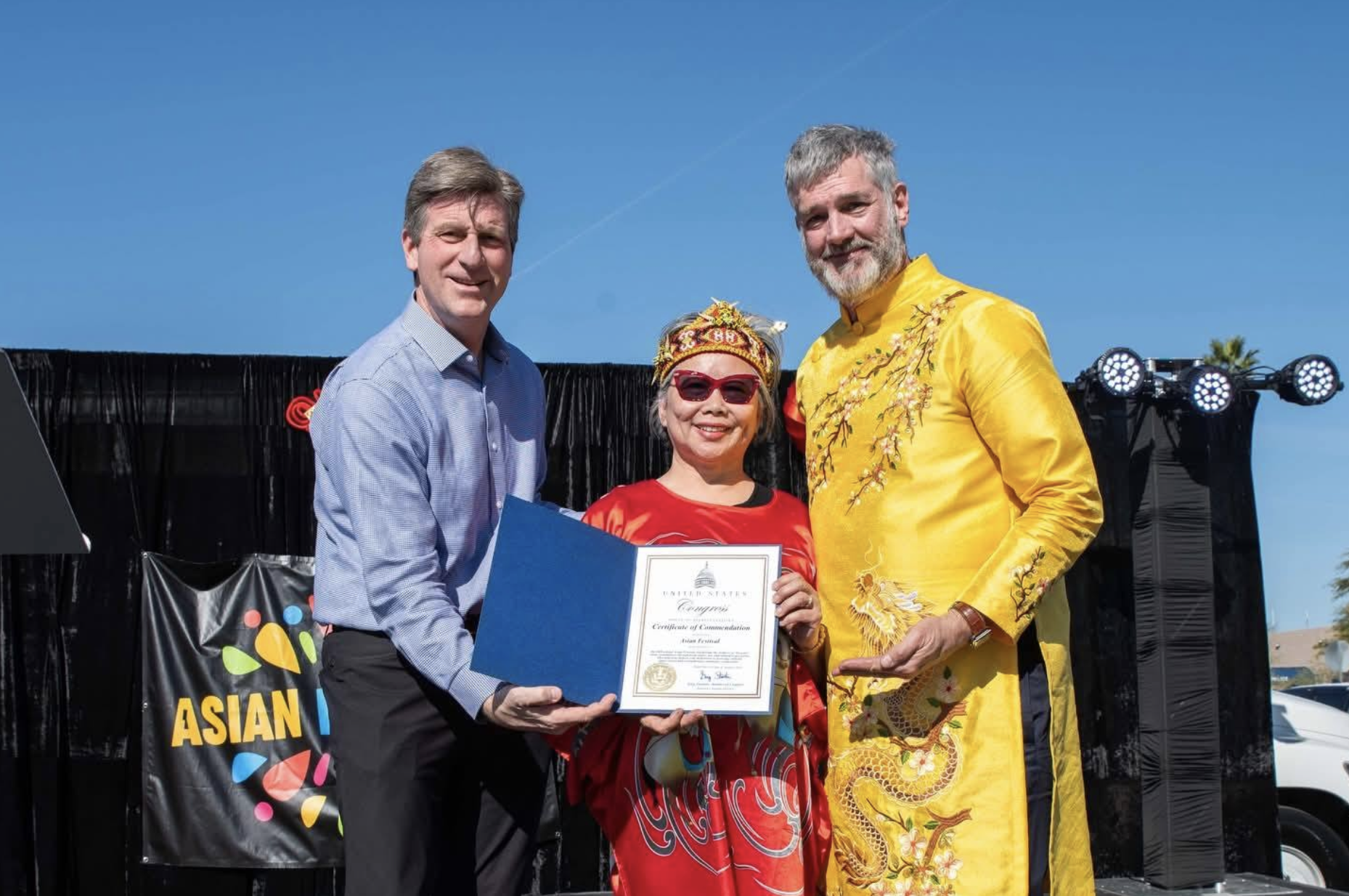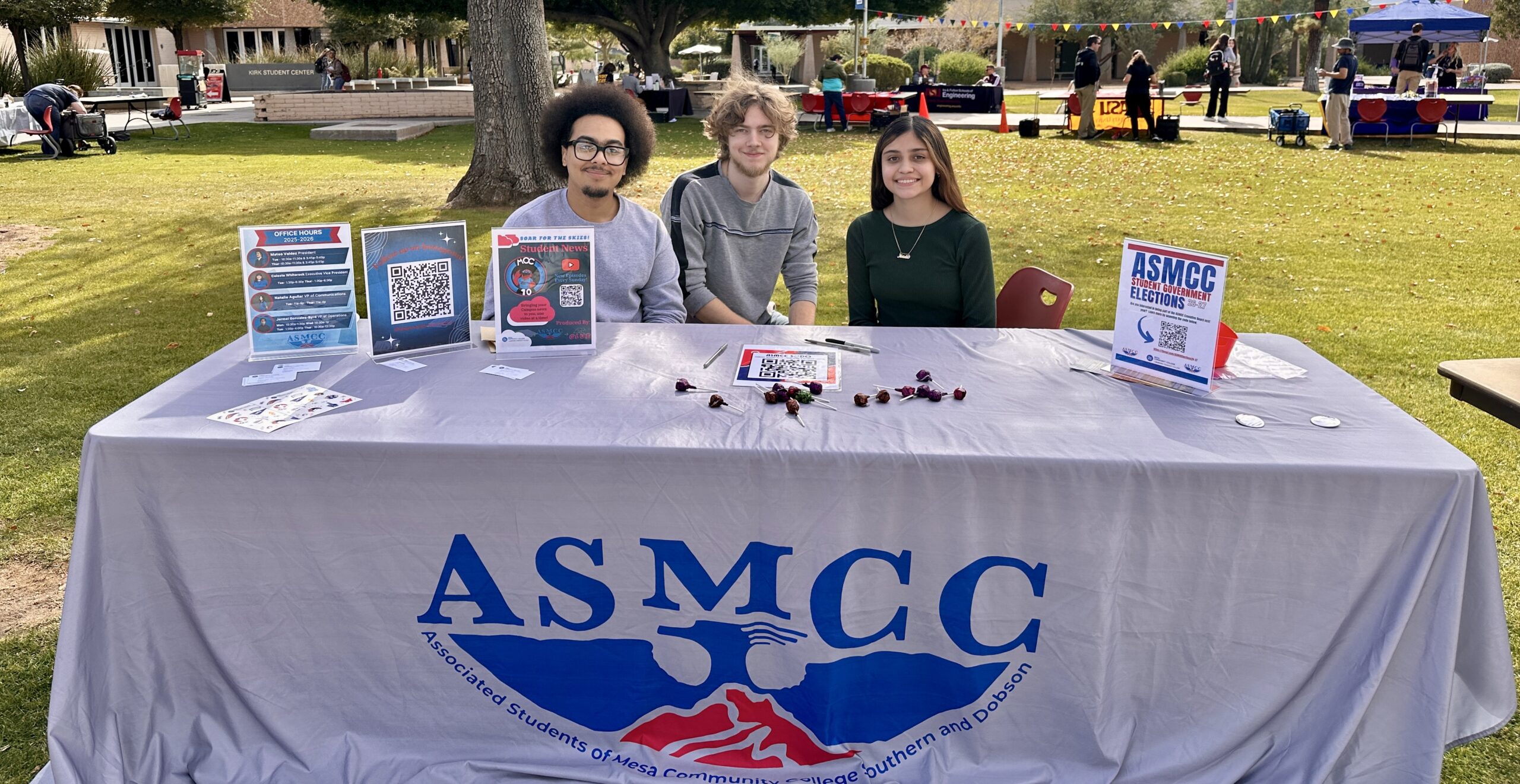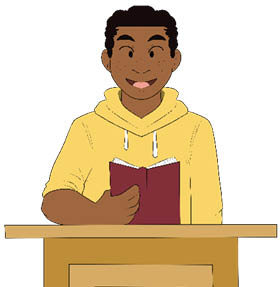Teachers share writings during Creative Writing Reading Night
The Creative Writing Reading Night began at 7 pm on Nov. 8 at the Mesa Community College (MCC) Art Gallery at MCC’s Southern and Dobson campus.
Three professors gave brief talks about their writings at a podium overlooking the faculty and students of MCC.
There were snacks and drinks and the event was full.
Joshua Rathkamp, Creative Writing Program Director and faculty at MCC, read three poems which he described as rewritings of the Bible. “The religion is based on Christianity.” Mr. Rathkamp said. “Instead of the Bible exploring the way humans should interact with God and live their lives according to His word, my book is based, in part, on the exploration of what the Bible would say if it was written today and if its ideologies could or should change.”
“Do not let your hair grow unkempt, but also do not round the corners of a beard, or give yourself a bowl cut, or you will die,” He quoted from one of his poems which received a laugh from the audience.
The poems fall into three categories; gospels, commandments, abominations, and parables. Influenced by the Old and New Testament, there is modernized imagery interwoven with humor.
Amy Lerman teaches Creative Writing, Academic Writing, and classes on American Literature at MCC. She read her short story, “What I Can No Longer see,” to an audience of students and faculty. “The story is about a woman who is pregnant at the same time her horse is,” Amy Lerman said. “Her husband narrates the story, and we learn from him not only about their love for each other and excitement about the baby but his worry over her returning cancer.” This short story was a finalist for Stories That Need to be Told 2018.
Professor Todd Fredson was the third writer who shared his verse. He read from, “Tomorrow the Future has an Appointment with the Dawn,” by Ivorian author, Tanella Boni. “I translated it a few years ago,” Mr. Fredson said. “And the translation just came from the University of Nebraska Press.”
The book weaves beautiful prose with the harsh realities of ethnic and political violence about the civil wars in the Ivory Coast during the first decade of the new millennium. “The first section of the book, Land of Hope, chronicles the cohabitation of inhabitants marked by difference as well as those “adrift and without origins,” Mr. Fredson said. “Section two of the book, “A murdered life,” recounts the killing of a young man during ethnic and political violence in the Ivory Coast in 2000.”
His reading ended with, “Saint Sebastian and the Aftermath,” a poem which takes place in Phoenix. “I thought it would be fun to end up back home,” said Mr. Fredson. “…I thought it would be nice to see the valley that way, as one more blip on the globe where lives are lived.”
